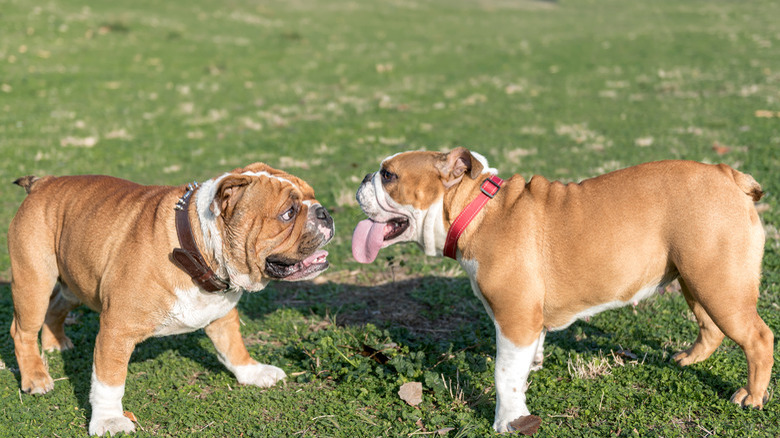What Happens When Dogs From The Same Litter Mate?
The mating instinct for dogs is just that — an instinct. They are wired by their body chemistry to want to mate and also to mate when the time is right for female dogs to be receptive, which doesn't happen all the time. When it does happen, an intact male dog will mate with any intact female, even if they happen to be from the same litter.
Dog inbreeding effects
Closely related animals, such as dog siblings, share many similar genes because they have the same parents. Mating two closely related animals can reinforce some good qualities, which is why breeders do it, or it can bring out dog inbreeding effects such as physical defects or disease.
Breeders do sometimes breed closely related animals such as brother and sister dogs when they want to be more likely to ensure that the offspring will have certain physical qualities, like a certain coat color or ear shape. However, even responsibly managed brother and sister breeding can cause problems.
Linebreeding two closely related animals is much more likely to produce the desired genetic traits than breeding animals that are not closely related. However, inbreeding reduces genetic diversity, which is what can lead to negative traits occurring. In fact, it was believed that King Tutankhamun suffered physical deformities and illness as the result of his parents being siblings.
Dog sexual maturity
Sexual maturity in dogs occurs between the ages of six and nine months, although the timing of it depends on the size (large dogs mature later) and the breed. Waiting too long to get dogs spayed or neutered can lead to accidental inbred puppies.
To avoid inbred puppies and the problems related to it, get your veterinarian's advice on when to get your dogs spayed or neutered so they can't reproduce. If you can't or don't want to get them fixed, then keep them separate.
Breeding dog siblings
Breeders who have bred siblings together have witnessed dog inbreeding effects, such as weakened immune systems and more autoimmune diseases. Inbred dogs seem to get sicker from common causes more often than other dogs, such as catching colds. Other negative effects of brother and sister breeding are that the offspring are more aggressive and less intelligent.
When breeders want to keep the traits of a dog "true," meaning that they want all Great Danes to continue to look like Great Danes, they have to provide more genetic diversity by mating dogs who are of the same breed but do not share the same parents.
If dogs who have a genetic defect are bred with other dogs who have the same genetic defect, the offspring will continue to have this problem as well because there is not enough good genetic material to prevent the defect in each generation. For instance, Great Danes are genetically prone to a condition called bloat, which reduces their life expectancy. If you do want to breed any dogs, whether they are related or not, it is best to have their genetics examined so you can prevent a negative recessive trait from becoming a dominant one in the next generation.
